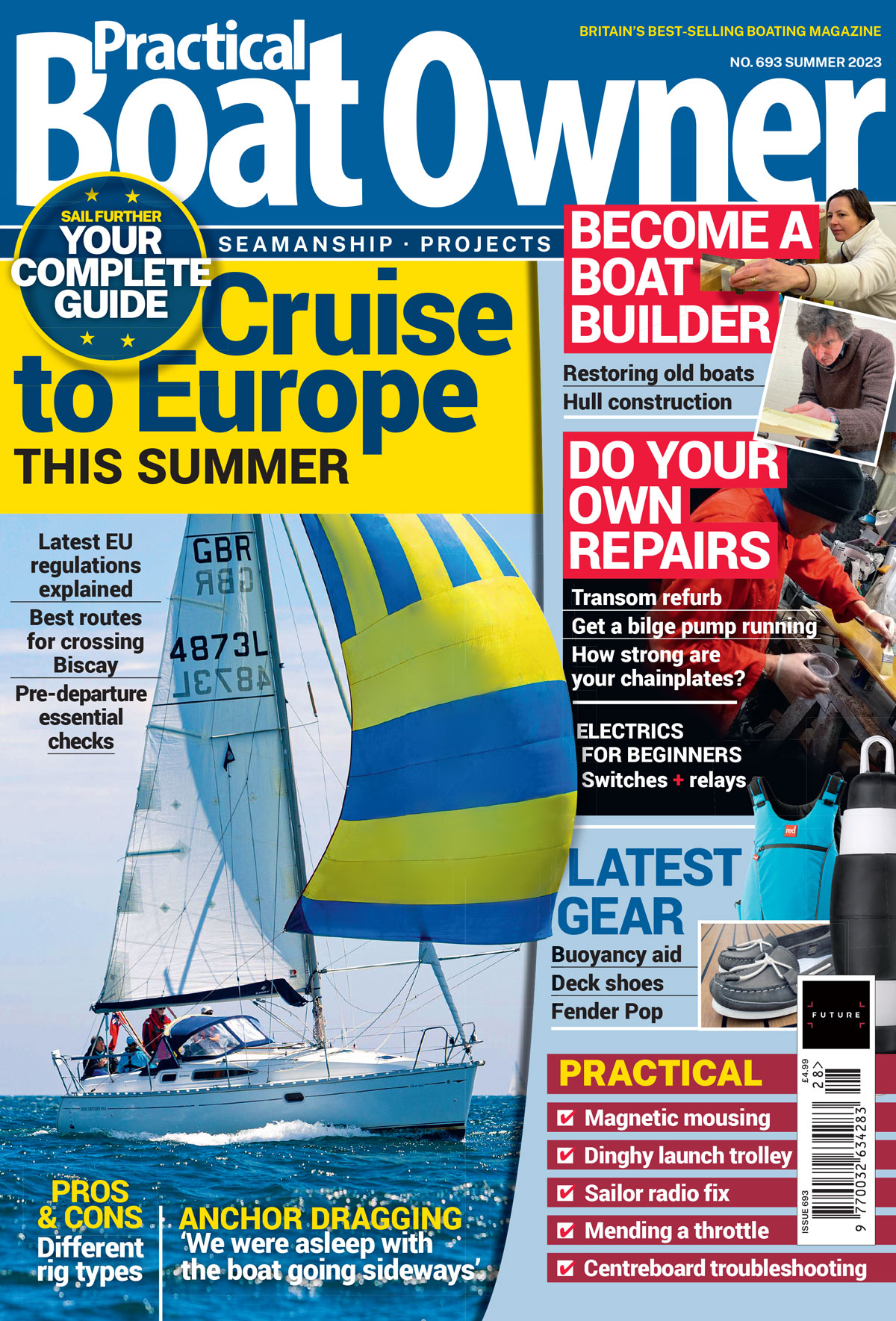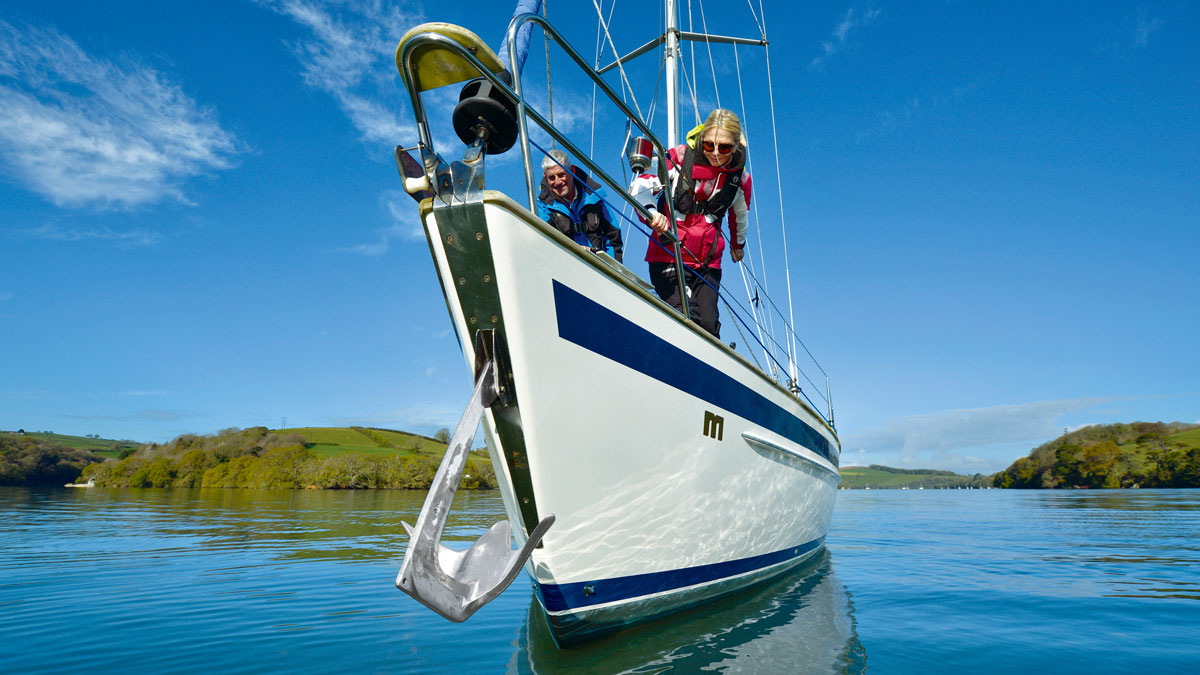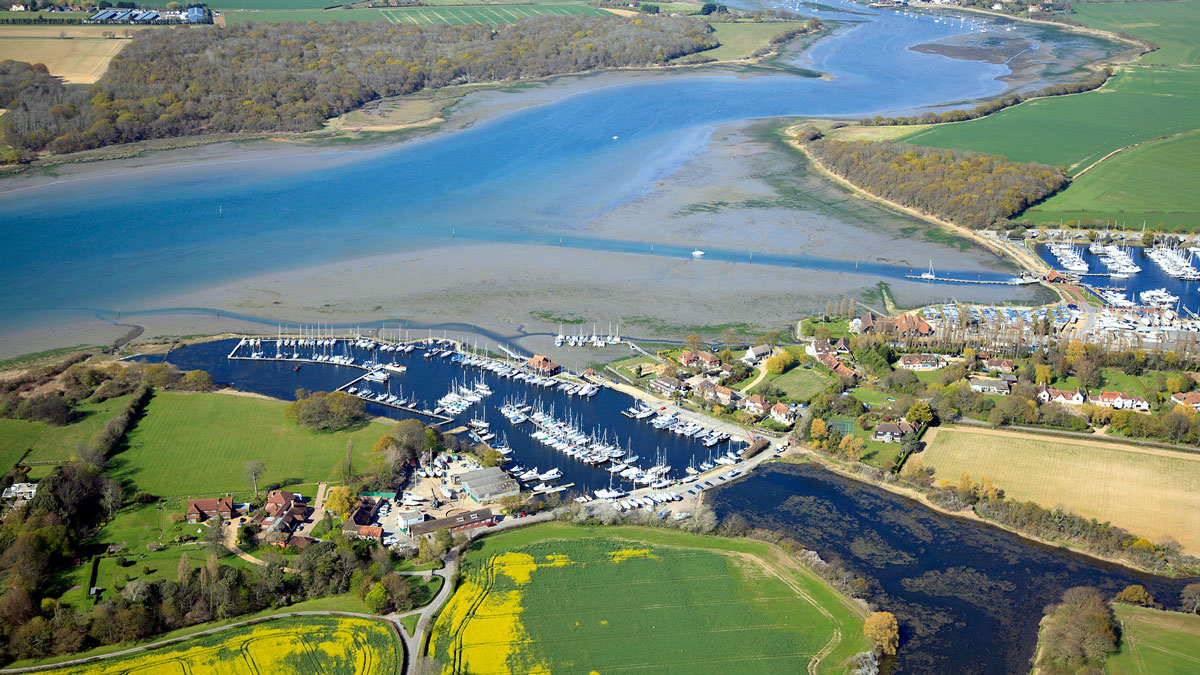Are anchoring charges fair to those sailors who do not use facilities ashore? We look at both sides of the argument
Anchoring charges and the law
Falmouth Harbour Commissioners has defended charging £15 a night to a boat owner who complained about “being made to pay to anchor”, despite having no intention of using facilities ashore.
“We do not charge for anchoring. We do charge harbour dues – and this is raised to pay for conservancy costs,” responds Miles Carden, CEO of Falmouth Harbour.
“As a trust port, we are financially independent receiving no money from the government and are required to raise all our operating funds from harbour users,” he said.
Liveaboard sailor Jimmy Lawrence said he is among many British sailors “outraged at the rate in which charging to anchor in wild, tidal rivers is becoming the norm”.
The 35-year-old from Cornwall, who sails a 35ft cat-ketch, said: “I had no desire to use their facilities at Falmouth Haven such as the dinghy park or shower block etc. I simply wanted to drop anchor on the river bed and go ashore. I will be writing to our King to uphold ‘our rights to anchor for free’ set down by his forefathers. I also encourage everyone in the sailing community to do the same. If enough of us write he will reply and order the harbour authorities to stick within the confines of the law.”
Jimmy had planned to spend the summer in Cornwall but is now off to the Mediterranean and Thailand, as it was “another example of rip-off Britain.”

Jimmy and his seadog Benji. Credit: thecruiserslifecoach.com
He added: “I’m aware I am entering a ‘natural harbour’ one that does not require dredging. It is also the only place I can drop anchor and go ashore in Falmouth. They have taken up every other part of the natural harbour with moorings, much to my dissatisfaction. My point is we have a legal right to drop anchor and go ashore.”
John Passmore, of the Old Man Sailing blog fame, was among 250-plus responses to Jimmy’s social media post.
He said: “I wrote about this problem in Falmouth last year. After I’d needed to pay a diver to disentangle my chain from a huge Victorian ship’s anchor, I asked for a refund or at least a contribution. The harbourmaster said he “could not guarantee the riverbed was free of obstructions”.
Toby Baxter-Smith, said: “£15 a night seems entirely reasonable. You are using resources such as buoyage, lights, harbour master/patrol services, planned dredging, maintenance of landing sites. I would agree getting charged to anchor in a bay would be unreasonable but in the Fal you have entered a harbour.”

Jimmy’s 35ft Freedom cat-ketch, at anchor. Credit: thecruiserslifecoach.com
Dean Winsbury said: “It is a 50% increase on last year whereas annual harbour fees were hiked 10%…it is price gouging visitors…”
Sebastian Ostenfeldt Roerup said: “We are on our way from Denmark heading south. I can’t believe someone is really charging you for staying at anchor. We planned to go on the south coast of the UK, but I will now choose the French coast. I don’t understand how you all accept it… Are you also paying to walk in the forest?”
Falmouth Harbour CEO Carden maintained: “Mr Lawrence is coming at this from the wrong perspective. Much of his views about rights to anchor are correct and this is not linked to fundus [seabed] ownership. We do own the fundus within the Inner Harbour as do A&P Falmouth – it depends where you anchor. This is not relevant to our charging.”
He added: “Our daily harbour dues are very reasonable compared to other harbours set at a nightly rate dependent upon vessel size. If you stay more than a few nights you can apply for an annual harbour due (£11/m).”
More here: pbo.co.uk/falmouth-harbour-faqs
The Cruising Association’s view on anchoring charges at Falmouth
James Collier, a member of the Cruising Association’s Regulatory & Technical Service Group, who sails out of Mylor, responds: “The estuary is one of the largest natural harbours in Britain. The port of Falmouth – the Inner Harbour – is a tiny proportion of the area, but is the busiest, most developed part.
“It has been a statutory port since 1870, which means it may charge harbour dues, according to the Harbours Act of 1964, which itself superseded the Harbours, Docks and Piers Clauses Act of 1847.

James Collier, CA RATS member
“Within Falmouth Inner Harbour there are three marinas and hundreds of moorings, including many reserved for visitors, but a small area is kept for temporary anchoring. This area isn’t ideal for staying overnight as it’s often disturbed by the pilot boats and ferries.
“And since you’re obliged to leave at short notice to allow ship movements you have to:
- Have an engine ready to go
- Not leave the boat unattended for over an hour
- Remain on board overnight and be ready to move
“Instead, the Falmouth Haven or a mooring may prove better, but if you do stay overnight you’ll have to pay dues, although if only staying a few hours they are waived. The fee is £15 for up to 12m LOA, which is typical of popular spots such as Salcombe. If picking up a mooring or calling at the Falmouth Haven, there is a reduced fee for a stay of less than four hours.
“Elsewhere in the harbour most dues are controlled by Truro Harbour Master. The anchoring fee is £7 a night; a short stay on a pontoon or mooring is £4.
Continues below…
The best boat anchor types for different types of cruising & their pros and cons
Rupert Holmes looks at the different anchor designs and how to choose the right one for your type of cruising
Berth holders hit back at ‘restrictive practices’
Berth holders at some Aquavista coastal marinas are angry over boat selling rule changes introduced by management
Swinging mooring setup: What I learned from trying a cheaper mooring option
After almost two decades of being marina berthed and concerned with the ever-increasing mooring fees, myself, and my partner, Brian,…
Big C Atlantic Challenge ends in disaster as the 1m boat is smashed while being lifted from the water
Andrew Bedwell's Big C Atlantic Challenge is over, after his 1m boat was smashed while being lifted from the water
“A good policy is to visit Falmouth, but retreat to a more peaceful anchorage or visitor’s pontoon overnight.
“These charges, particularly for those anchoring, may seem unwelcome, but those who have travelled to places without management or charges will find they inevitably fill up with abandoned moorings, fish farms or boats which never go anywhere, to the detriment of genuine visitors. So a balance has to be struck.”
In response, Jimmy Lawrence says there are few boats elsewhere in the harbour, like the River Fal, and there is plenty of space to drop anchor, therefore charging is unreasonable.
‘Harbour authorities entitled to levy harbour dues’
Royal Yachting Association (RYA) paralegal Lucy Rutter responds:
“The Crown Estate owns almost all the seabed around the UK out to 12 nautical miles, the territorial sea limit, and about half of the foreshore. However, powers and responsibility are passed to certain authorities to manage and run harbours.
“Statutory Harbour Authorities such as Falmouth Harbour Commissioners (FHC) are entitled to levy harbour dues on harbour users, including those who are anchoring. Section 26 of the Harbours Act 1964 repeals any previous statutory provisions limiting the discretion of certain harbour authorities as to ship, passenger and goods dues charged by them.
“Additionally, if it is the case that use of the facilities is included in the fee but one chooses not to use them, the harbour authorities are entitled to impose a charge for them and the decision not to use is the choice of the user.”
Enjoyed reading Anchoring charges and the law? 
A subscription to Practical Boat Owner magazine costs around 40% less than the cover price.
Print and digital editions are available through Magazines Direct – where you can also find the latest deals.
PBO is packed with information to help you get the most from boat ownership – whether sail or power.
-
-
-
- Take your DIY skills to the next level with trusted advice on boat maintenance and repairs
- Impartial in-depth gear reviews
- Practical cruising tips for making the most of your time afloat
-
-








